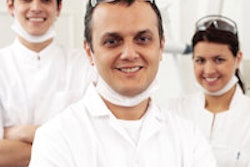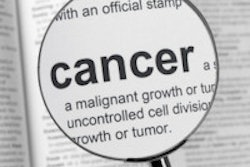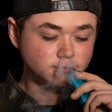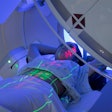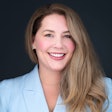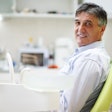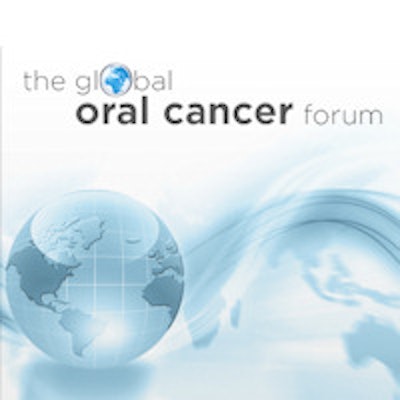
The newly formed Global Oral Cancer Forum is recruiting international participants to share the issues they face; learn about innovations, models, or ideas to curb growing rates of the disease; and help patients who have treatment complications.
The group will gather in New York in September 2015 and will bring together international multidisciplinary teams with a proven track record in their regions that demonstrate passion and dedication to oral cancer. The group, which launched the cooperative effort last month in New York City, will include clinicians, scientists, epidemiologists, activists, and public health experts.
Delegates from nine regions of the world will be selected and asked to provide short presentations summarizing the oral cancer situation in their respective regions. Along with a chair, a small team of presenters and panelists will present and discuss each topic.
By building these partnerships, the forum will promote needed changes to make a substantial impact on the incidence, morbidity, and mortality of oral cancer worldwide.
The forum in sponsored by the Henry Schein Cares Foundation.
Background
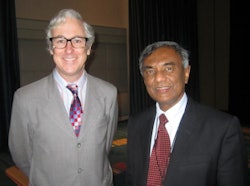 A. Ross Kerr, DDS, MSD, forum chair and clinical professor from the New York University College of Dentistry, and Saman Warnakulasuriya, BDS, Dip Oral Med, PhD, DSc, professor from King's College London. All images courtesy of the Global Oral Cancer Forum.
A. Ross Kerr, DDS, MSD, forum chair and clinical professor from the New York University College of Dentistry, and Saman Warnakulasuriya, BDS, Dip Oral Med, PhD, DSc, professor from King's College London. All images courtesy of the Global Oral Cancer Forum.In the U.S., about 40,000 patients annually are diagnosed with oral and pharyngeal cancers. Despite the easy accessibility to these body sites by healthcare providers, almost two-thirds of patients are diagnosed in advanced stages where the cancer has already spread to regional lymph nodes or beyond. Close to 8,000 patients a year die, and many more experience treatment complications. Worldwide, more than 400,000 patients a year are diagnosed with oral and pharyngeal cancers, and in many parts of the world the statistics are far worse than those in the U.S.
The unique concept for the forum came about from a collaboration of A. Ross Kerr, DDS, MSD, a clinical professor from the New York University College of Dentistry, who serves as the forum chair, and Saman Warnakulasuriya, BDS, Dip Oral Med, PhD, DSc, a professor of oral medicine and experimental pathology at King's College London in the U.K.
Forum Executive Director Shannon Nanne, RDH, emphasized the significance of the international collaboration.
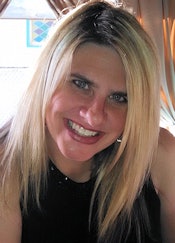 Shannon Nanne, RDH, forum executive director.
Shannon Nanne, RDH, forum executive director."We're trying to find ways we can learn from each other," she told DrBicuspid.com. "Every country is doing something different on oral cancer exams -- how they're screening, when and when not to screen -- and the different kinds of computer technologies, like saliva flow and bicarbonate testing. There are so many things out there that we need to learn about."
Delegates from around the world are being invited to submit abstracts via the forum's website for the inaugural meeting in 2015.
Two representatives from the World Health Organization (WHO) also are recruiting participants: Poul Erik Petersen, DDS, a professor of oral health programs and research at the University of Copenhagen Faculty of Health Sciences; and Hiroshi Ogawa, DDS, PhD, the dental officer with WHO.
Nonprofit organizations, including the Oral Cancer Foundation and its founder Brian Hill, an oral cancer survivor, also will participate in the forum.
Goals
Nanne's group will focus on building awareness of the gaps and innovation in oral cancer prevention. Six topics have been identified to showcase these gaps and also innovations in prevention, patient care, technology, and services across the oral cancer continuum by building partnerships that transcend cultural and economic diversity.
The topics to be covered on September 25 and 26 by panel discussions and the chairmen include the following:
- Global Oral Cancer Status: Regional Disparities: Newell Johnson, MDSc, PhD, a professor of dental research at Griffith University in Queensland, Australia.
- Understanding gaps in the oral cancer continuum and developing strategies to improve outcomes: Dr. Warnakulasuriya.
- To screen or not to screen: Who, Why, Where and When? Paul Speight, PhD, BDS, a professor of oral pathology at the University of Sheffield in the U.K.
- Clinical assessment and emerging technology for early detection: Dr. Kerr.
- Biomarkers for risk assessment and customizing treatment: Where are we? Miriam Rosin, PhD, from the University of British Columbia in Vancouver, Canada; and Silvio Gutkind, PhD, the chief of the oral and pharyngeal cancer branch at the National Institute of Dental and Craniofacial Research, National Institutes of Health in Bethesda, MD.
- Empowering the public to drive policy development -- the role of media, government and non-for-profit organizations: Pankaj Chaturvedi, MBBS, a professor and head and neck surgeon at Tata Memorial Hospital in Mumbai, India.
The forum's intellectual partners include the ADA, WHO, American Academy of Oral Medicine, American Dental Hygienists' Association, International Academy of Oral Oncology, International Society of Oral Oncology, International Federation of Head and Neck Oncologic Societies, European Association of Oral Medicine, BC Cancer Agency, King's College London, New York University (NYU) Dentistry, NYU Oral Cancer Center, and the World Workshop on Oral Medicine.




